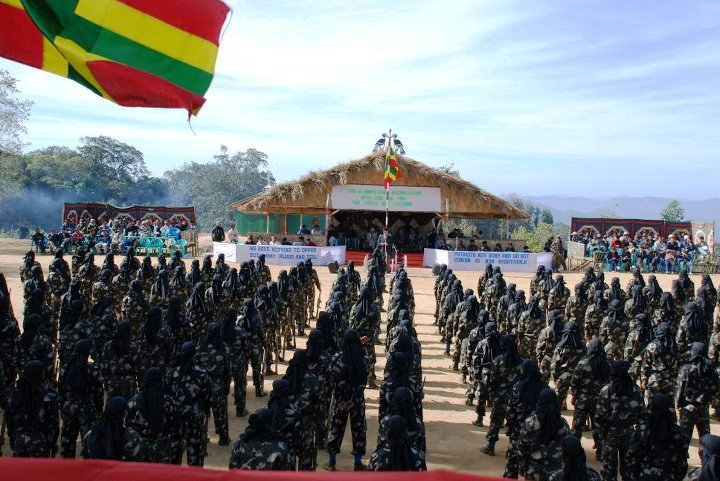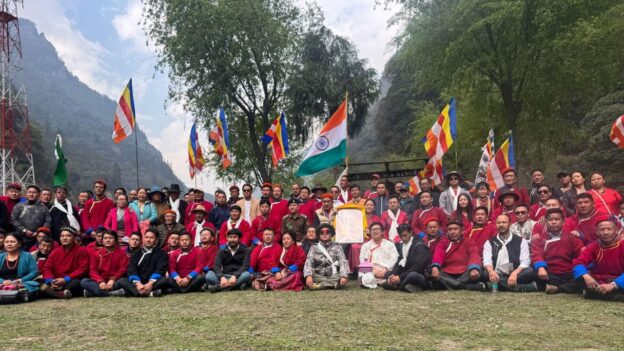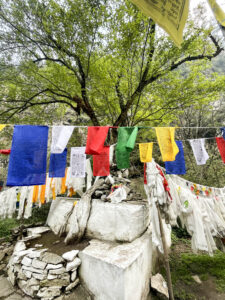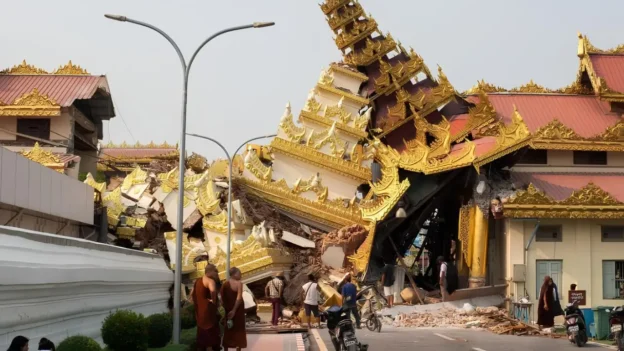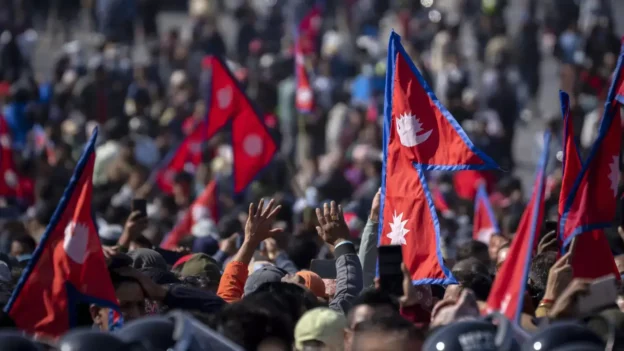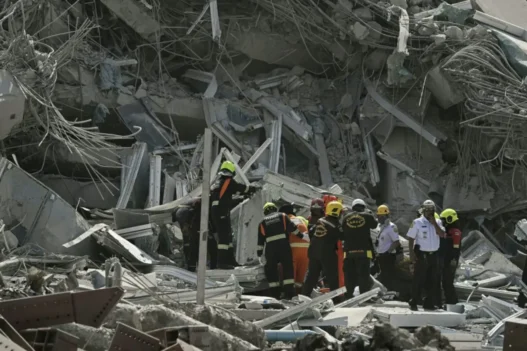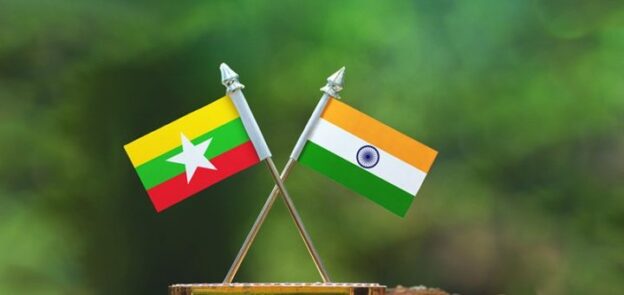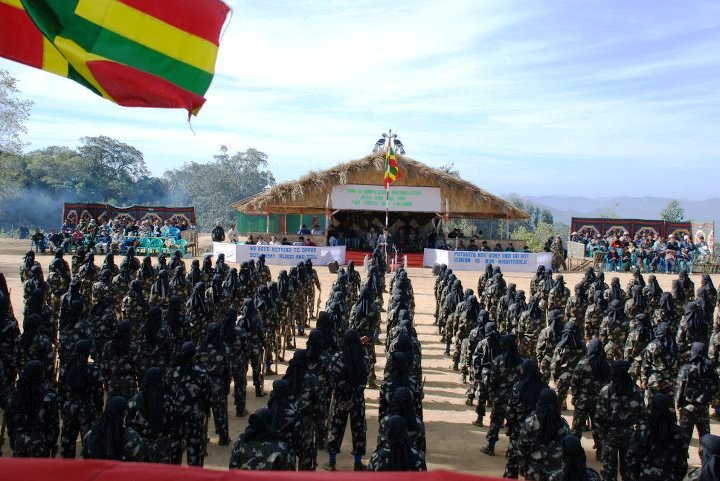
In August 2005, the Indian Army and Central Paramilitary forces signed a “Cessation of Operation” agreement with a group of armed Zomi and Kuki organizations in Manipur for a period of six months. The agreement aimed to quell violence and create opportunities for the insurgents to engage in peaceful dialogue with the government to resolve issues in the hill areas of Manipur. Although the cessation of armed operations was renewed periodically, the then Chief Minister of Manipur, Okram Ibobi Singh, publicly declared on July 15, 2006, that the state government had no knowledge of the agreement and did not approve of the ceasefire between the “Indian security forces and some non-Naga insurgents.”
According to a Imphal Free Press report, he further expressed his lack of information on the conditions of the agreement between the concerned underground groups and the army.
“I am totally blind in this matter and more so on the conditions maintained between the concerned underground group and the army”, he stated.
In 2008, the Government of India joined forces with the Manipur government for a constitutional dialogue with the United People’s Front (UPF) and Kuki National Organisation (KNO).
After several rounds of negotiations, a formal tripartite Suspension of Operation (SoO) agreement was finally inked on August 22, 2008, in New Delhi. The agreement was signed by representatives of the Union Government, the Government of Manipur, and both UPF and KNO groups.
Following the signing of the SoO, a Joint Monitoring Groups (JMG) were formed to oversee the process. In December 2008, after four rounds of meetings, the JMG finalised the process for issuing identity cards to approximately 1745 cadres out of a total of 2519.
The SoO agreement has since been extended, with the latest extension being made from March 1, 2023, for a period of one year.
The signing of the SoO agreement represented a significant breakthrough in the quest for peaceful resolution of conflicts in the region. The latest extension was signed by government officials and representatives, Additional Secretary for Home Affairs (NE), Piyush Goyal, and Resident Commissioner for the Government of Manipur, Devesh Deval, along with Ketheos Zomi and Joshua Thadou for the UPF and Dr. Seilen Haokip for the KNO, who reaffirmed their commitment to the cause of lasting peace and stability in the region.
Demands and Negotiation:
Former Union Home Minister P. Chidambaram and former Manipur Chief Minister
Okram Ibobi Singh at ZRA Designated Camp Muvanlai in 2010. Credit: PhualvaTimes
Following years of signing the SoO, in 2010 the UPF submitted a memorandum demanding the establishment of a state within a state in the hill areas of Manipur, modelled after an Autonomous Hill State (AHS) under Article 244A of the Constitution.
Simultaneously, the KNO insisted on carving out Kukiland under Article 3 of the Constitution by segregating Kuki-populated areas from the State of Manipur. This ethnic-based demand by the indigenous hill tribes’ insurgent group stems from the hill tribes’ long-held desire for greater autonomy. The demands are viewed as a serious threat to Manipur’s territorial integrity by the locals in the valley. Furthermore, even though the SoO agreement was extended for the sixth time in 2012, 17 out of the 23 outfits declined to sign it, pressing for immediate talks.
On June 15, 2016, the first meeting to begin political negotiations with the KNO and UPF took place, followed by two more rounds on 19th October, 2016 and 9th August, 2017.
Subsequently, the demand for a separate state and an Autonomous Hill State (AHS) appears to have been dropped during the negotiation process and years of extending the SoO after the KNO and UPF met with the then Union Home Minister, Rajnath Singh, in Guwahati in 2017. This could be the result of the government’s deft negotiations with the Zomi and Kuki armed groups to accept Sixth Schedule provision and a Constitutional Amendment to Article 371C as the most feasible solution without jeopardising Manipur’s territorial integrity.
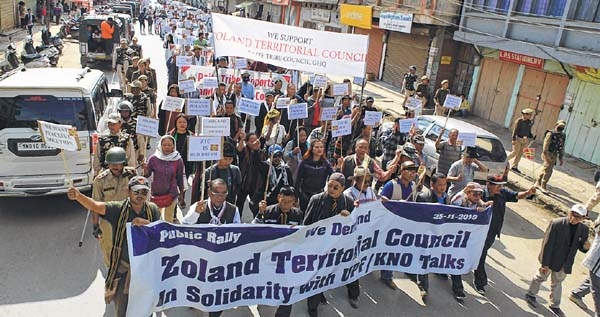
The demand to extend the Sixth Schedule to the hills of Manipur, on the other hand, is not a novel idea. Long before the emergence of the UPF and KNO armed groups, the indigenous hill tribes had been demanding this provision’s extension. The Hill Areas Committee (HAC), comprising the elected legislature from Hill Areas, passed a resolution in 1974 to extend the Sixth Schedule provision to the hill areas of Manipur under the Chairmanship of S.P. Henry.
In 1978, the HAC passed another resolution to extend the Sixth Schedule. The HAC reaffirmed the prior resolution in 1983 and again in 1990. In 1991, the Manipur Cabinet Meeting recommended the Sixth Schedule’s extension in the State’s Hill Areas with some local adjustments. In 1992, the Manipur cabinet meeting recommended to the Government of India the extension of the Sixth Schedule to the Hill Areas of Manipur.
In 2001, the Manipur Cabinet agreed for the third time to extend the Sixth Schedule of the Indian Constitution to the Tribal Areas of Manipur’s Hill Districts, with local adjustments and amendments. In 2002, the HAC requested the removal of the rider clause, and the Joint Secretary of the Ministry of Home Affairs sent a reminder to the Chief Secretary of the Government of Manipur to the previous D.O. letter of even number dated 14/03/2002 and subsequent reminders dated 17/05/2002 and 20/06/2001 about the extension of the Sixth Schedule to the tribal areas of Manipur.
The then Deputy Prime Minister of India, L.K. Advaniji, wrote a D.O. letter No. 11012/41/2001-NE.IV to Chief Minister O. Ibobi Singh, in 2003, seeking details from the State Government regarding the term local adjustments and amendments to be made while conferring Sixth Schedule status to Manipur’s Hill Areas.
In 2003, the HAC raised concerns over the delay in extending the Sixth Schedule Provision of the Indian Constitution to Manipur’s Hill Areas. To address this, the Committee decided to send a direct Memorandum to the Prime Minister and Deputy Prime Minister of India, requesting the extension of the Sixth Schedule Provision to the six existing Autonomous District Councils in Manipur’s hill areas.
Kuki State demand echoes in Kuki dominated areas. Credit: TSE
The state government’s attempt to withdraw from the tripartite SoO agreements may cause the SoO groups to backtrack on the negotiated conditions for Sixth Schedule and Article 371C Amendment, and instead push for a separate state under Article 3 of the Constitution or an Autonomous Hill State under Article 244A of the Constitution. This would create obstacles for the government in re-negotiating a peaceful settlement to the conflict and could result in a resurgence of insurgency beyond the designated camps established under the SoO ground rules.
Brief Profile of Kuki National Army (KNA) and Zomi Revolutionary Army (ZRA)
In Photo: Kuki National Army Cadres. Credit: BombielMedia
The conglomerate armed outfits KNO and UPF were originally led by P.S. Haokip, who serves as President of KNA, and Thanglianpau Guite, President of ZRA, as reported by various news outlets.
During the SoO signing, KNO was composed of 11 armed groups while UPF consisted of 8 armed groups. The KNA and ZRA had the highest number of cadres, estimated to be 600 and 717, respectively, among the conglomerates. These groups are considered to be among the largest armed groups, based on the latest available information.
SoO and Dissent
A sit in protest in the Valley demanding the withdrawal of
SoO with the hill based armed groups. Credit: Pothasang
A valley-based organisation known as the People’s Alliance for Peace and Progress, Manipur (PAPPM) issued a press release on December 3, 2022, calling for the Indian government and Manipur government to revoke the SoO agreement with KNA, the armed wing of KNO, and ZRA the armed wing of Zomi Reunification Organisation (ZRO).
According to the PAPPM, the SoO groups, allegedly engaged in drug trafficking and poppy cultivation, are led by non-Indian leaders. The organisation questions why the Indian and Manipur governments entered into an SoO agreement with groups controlled by Myanmar nationals. The press release further accuses both governments of supporting the military growth of these groups by providing a large tract of land in Manipur under the pretext of a peace process.
It further stated, “…large influx of persons of Myanmarese origin in recent times under the patronage of these militant groups and making them settle in various places in hill areas of Manipur without any scant respect of law…”
Surprisingly, during an interview with the NorthEast Live news channel on March 10, 2023, the Chief Minister of Manipur expressed views that were of similar interests to the PAPPM. He stated that the armed group leader is of foreign origin/non-Manipur native and is an instigator to alleged illegal settlers/rallyist.
His statement came in the backdrop of a peaceful rally organised by Indigenous Tribal Leaders Forum (ITLF) alleging the government encroaching upon tribal land in declaring their land as protected forest, reserved forest, wildlife sanctuary and the alleged unconstitutional eviction drive that fails to consult hill matters to the HAC as mandated by Article 371C and its subsequent Presidential Order.
The KNO spokesperson, however, denied their involvement in the peace rally organised in various districts of the state. The rally, however, turned violent only in the District of Kangpokpi. On the other hand, one could also state that it is not surprising to allege the Manipur SoO armed group’s involvement without any factual corroboration, as the demand and negotiations of the political talk has always been on the demand for greater autonomy over the tribal indigenous lands and cultural protection.
The Chief Minister has previously expressed dissatisfaction with the SoO agreement, such as in 2017, when he claimed that security forces were not properly enforcing the agreement. He said that the security forces were ‘not serious’ in their undertakings, and over frequent violation of SoO conditions as many of the militants roam at their will and do not stay in their designated camps.
The recent announcement by the Chief Minister, made during an interview with NorthEast Live, regarding the withdrawal of his cabinet from the tripartite talk with KNA, ZRA, and KRA, has received mixed reactions from different parts of the state.
The Zomi and Kuki-dominated hills are worried about the potential domino effect that could occur if the SoO with the ZRA and KNA is terminated, leading to the resurgence of decades-old problems. When the state cabinet announced its decision to withdraw from the talks, the town of Churachandpur experienced a palpable sense of unease, with tensions reaching a level that left the local populace startled even at the slightest sound, including that of a mere firework in celebration of a wedding.
The prevailing sense of apprehension was a reflection of the deep-seated concerns among the people of the region regarding the potential consequences of such a decision.
Indeed, the abrupt move to withdraw from the SoO has created a myriad of uncertainties and apprehensions, both within the town of Churachandpur and across the border region.
The decision has been met with widespread consternation among the locals which they see as a betrayal of the trust that had been established through years of painstaking negotiations between various stakeholders. Furthermore, the potential implications of this decision for the security and stability of the region have also not gone unnoticed, leading to a climate of anxiety and uncertainty.
It is, therefore, imperative for policymakers and stakeholders to engage in constructive and collaborative dialogue to address the concerns and chart a path forward that ensures the safety and security of all those who call this region home. Failure to do so risks further exacerbating the already fragile situation and undermining the hard-won gains of recent years.
Ironically, despite a week after the state bolstered confidence to maintain peace by withdrawing SoO with the hill- based armed groups, the Manipur Home department issued a notification on March 24, 2023, extending the AFSPA, 1958 in the entire state for another six months, except in 19 areas located in the valley.
The Manipur government sought to withdraw from the SoO agreement with KNA and ZRA which led the KNO and the UPF conglomerates, by citing the foreign origin of their leaders. The government also accused them of inciting a rally to voice out the indigenous land rights, and the alleged unconstitutional eviction drive, which calls into question the government’s commitment in solving the core issue of indigenous land autonomy through peaceful constitutional dialogue.
The government’s move merely damaged the ongoing peace process in the State. It is believed that the tripartite agreement is currently in a condition of development in which the Union and State Governments have effectively persuaded the conglomerate to accept an extension of the Sixth Schedule provision or an amendment to Article 371C of the Constitution.
The Chief Minister’s statement to NortheastLive regarding the withdrawal from the SoO with KNA and ZRA has also reignited demands for the implementation of the National Register of Citizens (NRC) to curb illegal immigration in the State and to uphold the territorial integrity of the State.
Representation and NRC:
The inevitable delimitation process for the whole State of Manipur is also believed to be adding fuel to the demand for the implementation of NRC in the State.
For instance, as per 2011 Census of India, in the valley, Imphal East District (combined with Jiribam District) with a population of 456,113 has 11 Assembly Constituencies and Thoubal District (now divided into Thoubal and Kakching District) with a population of 422,168 has 10 Assembly Constituencies. While in the Hill, Senapati District (now divided into Senapati and Kangpokpi District) with a population of 479,148 higher than the two previously mentioned valley districts has only 6 Assembly Constituencies.
Redrawing of the Assembly Constituencies based on the population figures would eventually loosen the anchored 19 reserved ST Assembly constituencies in the State. Unless the fixed 60 total Assembly constituencies seats are increased, there is a fear that ceding some of the 40 assembly seats in the valley to the hills which are reserved for the Scheduled Tribes will serve as an achilles’ heel for the valley politician.
The need for the NRC implementation is argued by the Manipur legislature on the basis of abnormal population growth rates of the hill districts as pointing to a strong possibility of a huge influx of non-Indians. The argument is mainly relying on one indicator of population growth i.e. migration. Apart from the migration indicator, there are various other indicators such as birth rate, death rate, fertility rate, inter and intra state migration, etc.
Security and immigration policies need to be relooked if one’s State simply feels threatened with only a guesstimate of a refugee inflow without any actual public data and a reliable indicator of abnormal growth since the coup d’état in Myanmar began on 1st February 2021. The apprehension of immigration influx has always been there in the past as there are sizable numbers of Meitei, Kuki-Chin Zomi, and the Naga population in Myanmar who are believed to be able to settle in Manipur naturally as they share the same ethnicity.
Refugees and NRC:
The late recognition of the existing humanitarian crisis in the neighbouring country – Myanmar by the State of Manipur played a major factor in politicising refugees as a threat to the State demography.
Unlike Manipur, the state of Mizoram has officially recorded and registered more than thirty thousands refugees by November 2022. This is only possible because of the Government’s ability to recognise the humanitarian crisis in Myanmar and the inevitable refugee inflow, which help them maintain a record of identity for the refugees. The non recognition of the humanitarian crisis by the State coupled with occasional arrest of Myanmar nationals without proper documents or with fake Aadhaar card has prompted an unsubstantiated narrative that the refugees are taking over the Manipur hills. The Manipur government, however, has not released an official public data of the total number of illegal immigrants or refugees till date.
Implications for Peace and Development
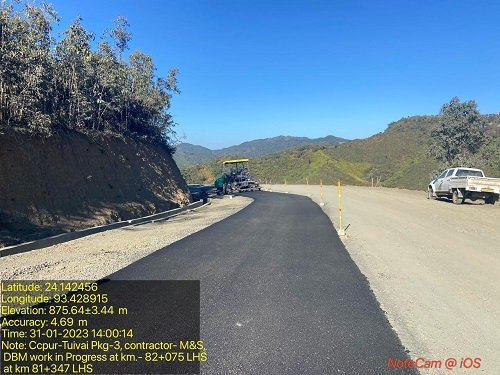
The Manipur cabinet’s decision to withdraw from the SoO agreements with the KNA and ZRA could have significant consequences for India’s mega project, the Act East Policy (AEP) and more importantly, the State development process. To this end, Home Minister Amit Shah during his visit to the State in January stated the slogan for North-East was “Look East”, which Prime Minister Narendra Modi has changed to “Act East” and added that the BJP freed Manipur from terrorism.
The SoO agreements intended to facilitate peace talks, put an end to insurgency in the region, and provide a conducive grounds for development and the progress of the AEP particularly in the Hill Areas of Manipur.
During the recent February Budget session, the Chief Minister of Manipur, Biren Singh, affirmed that law and order have improved and that tourism is starting to flourish in the state.
The AEP, launched in 2014 also aims to enhance India’s engagement with South-East Asia and promote economic, cultural, and strategic ties with the region. The policy is crucial for India’s quest for greater influence in South and Southeast Asia, and the withdrawal of the SoO agreements could jeopardise India’s efforts to expand its reach in the region.
The transborder Zomi and Kuki ethnic groups are grassroots stakeholders in the region due to their close cultural and linguistic similarity factors. Based on these factors, the armed KNO-UPF umbrella organisations are also believed to extend their influence beyond the state of Manipur. The withdrawal of the state from the SoO agreements could usher resumption of hostilities between the armed groups and the government forces, destabilising the region’s economic growth, peace and development.
The Act East Policy is focused on developing infrastructure, trade, and investment links with South-East Asia, and the region is a key market for Indian businesses. The withdrawal of the SoO agreements and its eventual fallout could make it difficult for Indian businesses to operate, especially in Moreh and the Southern region of Manipur, as the security situation could deteriorate. It may be recalled that, in the 139 days economic blockade called by the United Naga Council (UNC) in 2016-2017 on the National Highways located at the Northern and Western region of Manipur limped the State with an absence of a proper alternative trade/economic route.
The border region is not only home to the hill-based militant group, it is also a home to various valley-based militant groups involved in various activities such as extortion, kidnapping and attacks on the Indian security forces.
The most recent activity that highlights the critical damages done by such an environment can be seen in the ambush of Col. Tripathi, his family, and four Jawans by the People’s Liberation Army (PLA) and Manipur Naga People’s Front (MNPF).
However, the activities of the KNO-UPF umbrella organisations have effectively come to a halt since the signing of the SoO.
The withdrawal of the state government from the SoO endangers the uneasy but long-standing peace that had been maintained in the region. This creates further barriers to the effective establishment of expansion of both mainland and indigenous businesses in the region. The withdrawal of the SoO agreements could also detriment India’s relations with Myanmar due to the region’s close ethnic relations on both sides of the borders.
The suspension of Armed Operations agreement and subsequent tripartite agreements involving the Government of India, Government of Manipur, and various armed groups in Manipur have significantly fulfilled the vision of Prime Minister Narendra Modi for an insurgency-free and prosperous North East and under the guidance of Union Minister of Home Affairs Amit Shah. Through constitutional dialogue, the tripartite talks have successfully addressed the long-standing demands for greater autonomy and self-governance in the hill areas of Manipur, resulting in significant development in the state.
The demand for a separate state or autonomous hill state which appears to have been dropped in favour of extending the Sixth Schedule provision and a Constitutional Amendment is already a huge achievement for the Government of India and the Government of Manipur that will not disturb the territorial integrity of the State.
However, any attempts by the state government to withdraw from SoO agreements after rounds of negotiations would not only set a negative precedent in influencing other armed groups from engaging in constitutional negotiations. This, in turn, could further lead to a resurgence of demands for a separate state or autonomous hill state, or perhaps sovereignty. Therefore, this highlights the need for a continued dialogue and negotiation between all parties involved to find a peaceful and sustainable solution to the issues at hand.
Mung Neihsial is now pursuing his doctorate in the Department of Law at North Eastern Hill University in Shillong. His areas of research interest include native jurisprudence as well as the legal system of the state. The views expressed in this article are those of the author and do not represent the stand of this publication
Sangmuan Hangsing is a freelance journalist and independent researcher. He provides comprehensive insider perspectives, including his phenomenological and everyday lived experiences of the sovereign as minorities in India, as well as analytical observations of the governance regime. The views expressed in this article are those of the author and do not represent the stand of this publication.

